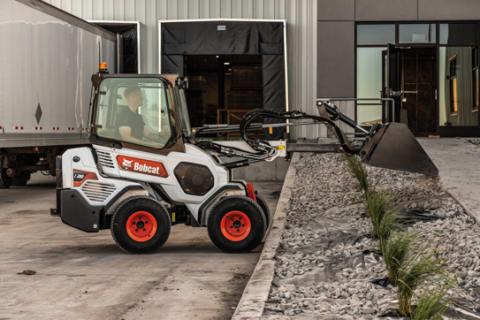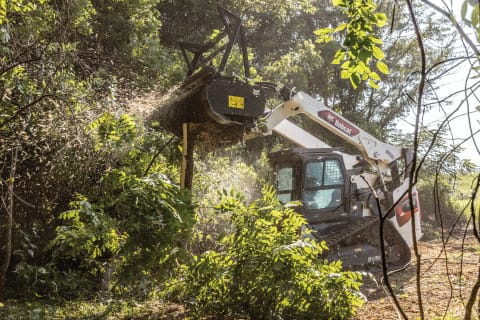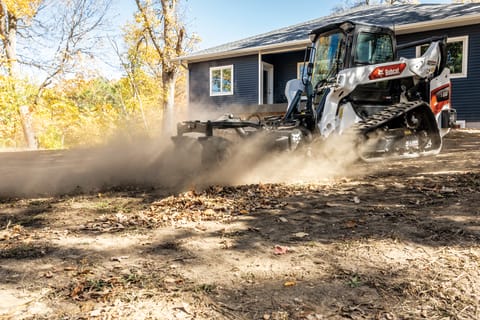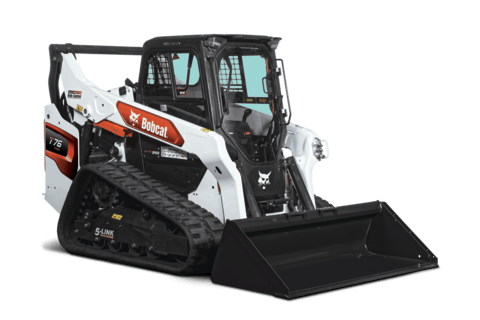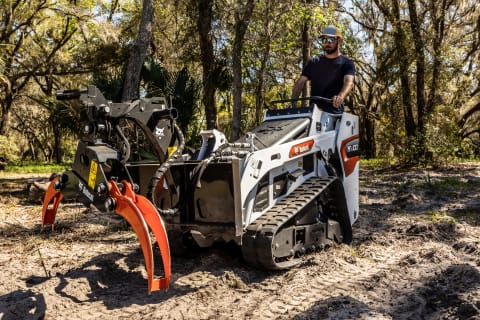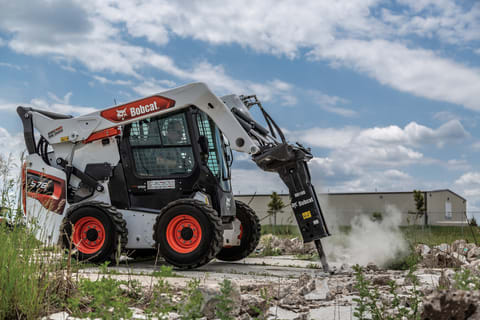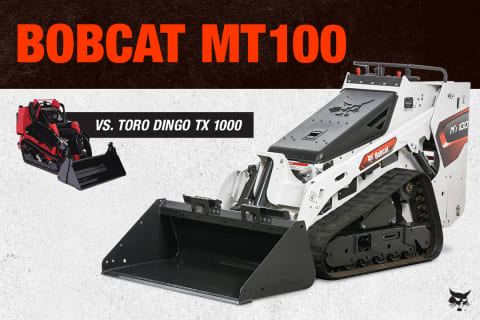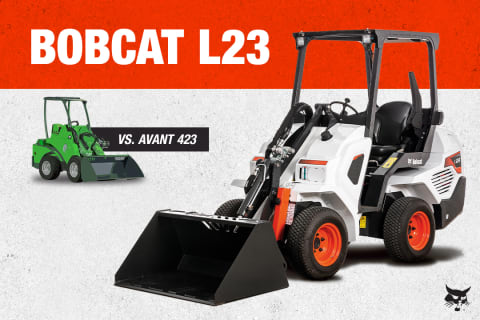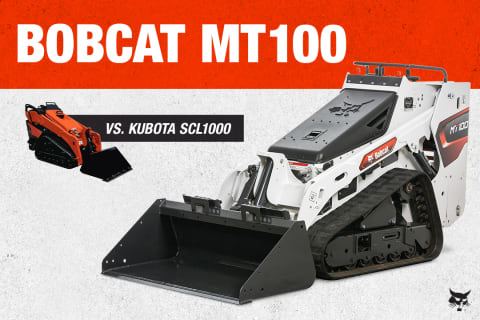- Home
- Buying Resources
- Loaders
- Transporting Your Compact Loader
Build Your Loader, Get a Free Price Quote
Customize your loader. Select the model, choose options, and submit to your local dealer for a free price quote.
Build & QuoteTransporting Your Compact Loader
Published on July 2, 2015
Transporting compact loaders involves several steps that should not be overlooked. Selecting the right transport and towing vehicles, properly loading the machine and practicing proper fastening techniques are steps that should be followed by you and your employees when transporting your loader.
Selecting the Right Transport and Towing Vehicles
Be sure the transport and towing vehicles are of adequate size and capacity for the weight of the machine and attachments being transported. Adequately designed ramps of sufficient strength (Wood ramps can break and cause personal injury) are needed to support the weight of the machine when loading onto a transport vehicle.
Loading the Machine
Always disengage the auto idle feature (if equipped) when loading or unloading the machine on a trailer. Make sure mud, sand and any other debris are removed from the loader before loading the machine.
When you are ready to load the machine onto the trailer, travel up the ramp with the heaviest end up. The loader will be heavier in the rear than the front unless it is connected to an attachment, such as a breaker or planer, which will make it heavier in the front. The rear of the trailer must be blocked or supported when loading or unloading the machine to prevent the front end of the trailer from rising up.
Then, position the loader onto the trailer by the manufacturer’s guidelines.
Securing the Loader
Once the machine is on the trailer, operators should lower the attachment to the floor of the trailer, stop the engine and engage the parking brake. Install the chain at the front and rear loader tie-down positions as identified by the Operation and Maintenance manual. Operators then should secure the chains and binders using recommended practices.
Following these steps and all instructions in your Operation and Maintenance manual will help minimize issues or problems the next time you transport your equipment to a jobsite. Get more information on manuals available for your specific machine, including loading information and machine specifications.
Explore More Loader Resources
View All Articles- Small Articulated Loaders Productivity for Grounds Maintenance
Small Articulated Loaders Productivity for Grounds Maintenance
Learn about how versatile and powerful small articulated loaders increase productivity and their advantages for ground-maintenance and landscaping professions. - How Compact Loaders are Beneficial for Forestry Work
How Compact Loaders are Beneficial for Forestry Work
Learn how Bobcat compact track loaders and skid-steer loaders provide versatility with attachments and machine power to increase your productivity for forestry work. - Landscaping Attachments for Compact Loaders
Landscaping Attachments for Compact Loaders
Explore the top landscaping attachments for your compact loaders, like compact track loaders for versatile productivity and power on the job. - Section 179 Tax Deduction for Compact Equipment
Section 179 Tax Deduction for Compact Equipment
Leverage IRS Section 179 for small business tax benefits to deduct the full purchase (or lease) on qualifying compact equipment during the tax year. Learn more. - Top Attachments for Mini Track Loaders
Top Attachments for Mini Track Loaders
Discover the top attachments from the 24 available for the Bobcat Mini Track Loaders for job-specific landscaping, grounds maintenance and forestry challenges. - Bobcat Attachments for Concrete Work with Compact Loaders
Bobcat Attachments for Concrete Work with Compact Loaders
Learn why Bobcat loaders are the machines of choice for concrete contractors with the productivity increase of Bobcat attachments specifically for concrete work. - How to Choose Compact Track Loader Tracks
How to Choose Compact Track Loader Tracks
The right compact track loader tracks can improve your machine’s performance, minimize ground disturbance and extend your working season in wetter months. - Bobcat MT100 vs. Toro Dingo TX 1000
Bobcat MT100 vs. Toro Dingo TX 1000
When choosing a mini track loader, it is important to examine key features and benefits. Explore how the Bobcat MT100 stacks up against the Toro Dingo TX 1000. - Bobcat L23 vs. Avant 423 Small Articulated Loaders
Bobcat L23 vs. Avant 423 Small Articulated Loaders
When choosing a small articulated loader, it can be overwhelming from the options. Explore this comparison of two popular options: the Bobcat L23 and Avant 423. - Bobcat MT100 vs Kubota SCL1000
Bobcat MT100 vs Kubota SCL1000
Every feature and specification matters, to obtain maximum production and output from a mini track loader. Compare the Bobcat MT100 against the Kubota SCL 1000.
